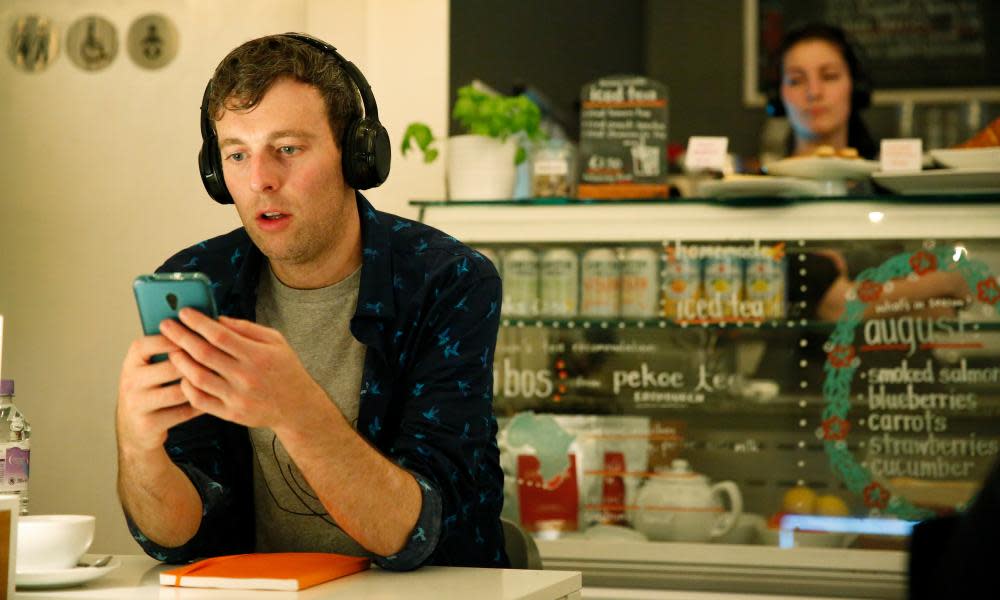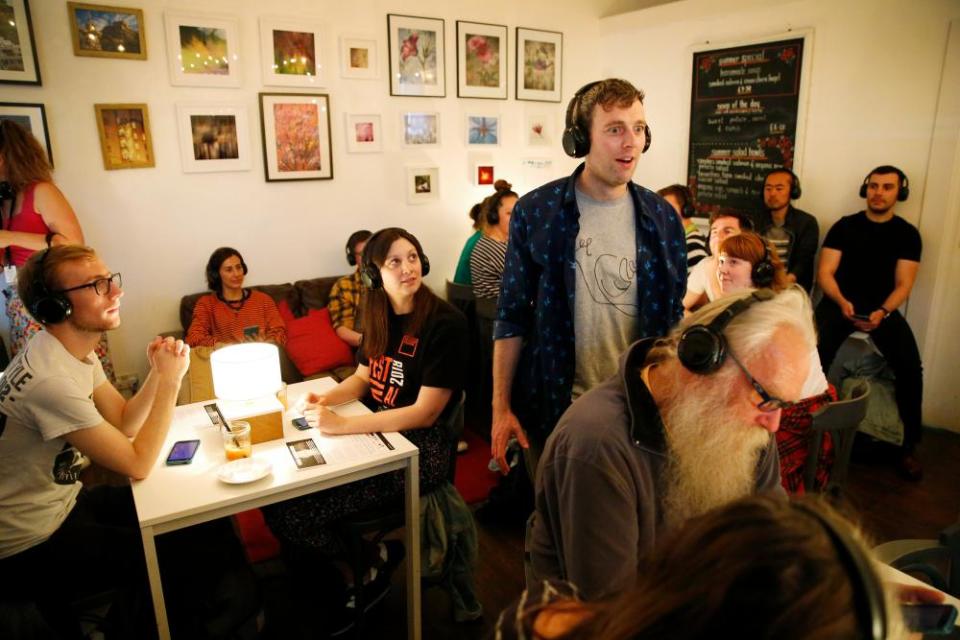This digital afterlife: mobile phone-based show connects us in our grief

‘If your partner dies,” Caroline Twigg wrote in an article for the Guardian in 2015, “a lot of admin also comes your way. And, these days, people die a digital death alongside their physical one, which creates a whole new world of admin that didn’t pass the radar of grieving widows 50 years ago.” After the death of her husband, Twigg found herself unsure how to handle his remaining digital presence.
In 2018, theatre company Dante or Die created User Not Found, a fictional story of grief and digital legacy inspired by Twigg’s article. Written by Chris Goode, the show was performed as a part-live, part-digital performance in a cafe in Edinburgh. Since this year’s events have dramatically shifted our relationship towards technology, and altered the ways in which we grieve, the company has redesigned the show as a phone-based performance to be watched from the palm of your hand. It will be available on YouTube and on the Guardian’s website next month.
“We always work in unusual sites,” co-artistic director Daphna Attia says over Zoom. “When we did the show, the sites were the cafe and the screen. When lockdown happened, suddenly the screens became our primary site.”
In the play, our protagonist Terry is left as digital executor of his ex-boyfriend Luka’s social media profiles after his death, given the responsibility to keep or delete. Social media companies are increasingly having to deal with the question of what happens to our digital selves when we die; it is estimated that by the year 2100, Facebook will have 4.9 billion deceased users.
“It creates a false sense of eternity,” Attia says, “this digital space.” Increasingly, three options are being offered to users: leave the profile as it is, delete it all, or memorialise it. Twigg chose to memorialise her husband’s account. “I know friends go from time to time and look back through the photos, just to have a wander through it,” she says over the phone. “It’s good because it doesn’t feel like he’s been erased.”
While there are concerns and complexities around privacy and ownership on social media, User Not Found veers away from the Black Mirror dystopia approach. “It was never supposed to be a show that says technology is evil,” Attia says. “It is a show about how technology helps us increase connection with other people.”
“We were always talking about trying to find the human qualities,” adds co-artistic director Terry O’Donovan, who also plays the voice of the character Terry. “So how do you humanise the screen?” As we watch on our phones, we see what Terry sees: condolence texts dropping down, an email from the digital legacy management company, Luka’s Facebook wall as Terry endlessly scrolls. “Luka’s feed is actually pretty boring,” O’Donovan says, “but it’s the same as finding an old box under the bed. It’s mundane, but it’s the emotional connection to it that makes it important.”
As Terry scrolls, he veers between feeling empty and overwhelmed, at once deeply connected to Luka through his online presence, and intensely dislocated from it all. In the last few months of isolation, we have all had to find ways of creating intimacy on screens, feeling this familiar juxtaposition of presence and absence. “My parents live in another country and the distance from me and their grandchildren felt further than ever,” Attia says, “[but now] my 10-year-old son chats with my dad every morning on Skype.” When O’Donovan’s one-year-old daughter sees his laptop, she points at it and calls it “Nana”. “She knows her grandparents through the screen,” he says, “and it’s allowed them to stay in her consciousness.”
Over time, Twigg has also found comfort in the online space. She scattered her husband’s ashes in the Lake District and dedicated a bench to him, but she wanted something she could visit at any time. In the days after his death, she created a website with photos and memories.

“For our daughter, who never knew him, that will be amazing,” she says, “because it really does get a sense of him across. She can go to it as much as she wants, when she chooses, and just get stuck into pictures and stories. That’s a really powerful thing that digital has offered us.” She has also found support online through the networks of WAY, a charity for those widowed under the age of 50.
Attia and O’Donovan are keenly aware that some audience members may watch User Not Found having recently experienced grief. “The recent times were unprecedented in terms of people grieving online, distant from their loved ones,” Attia says. “I hope the show will offer an intimate, reflective place, and allow people to find their own process of grieving and remembering.”
They are also aware of technology’s limitations; during lockdown, O’Donovan attended a virtual funeral. “My friend was speaking, and I was so grateful to be able to hear her words,” he says, “and for her to know that her mates were there ‘with’ her. But then it was over and the day continued. Lockdown has really illustrated that spaces and movement are so important to how we process emotions.”
In these times, when we are craving human interaction, User Not Found suggests that while technology can’t recreate the feeling of physically being together, it can offer valuable ways to remember, to grieve, and to connect.
Dante or Die’s User Not Found will be available from 10 September.


